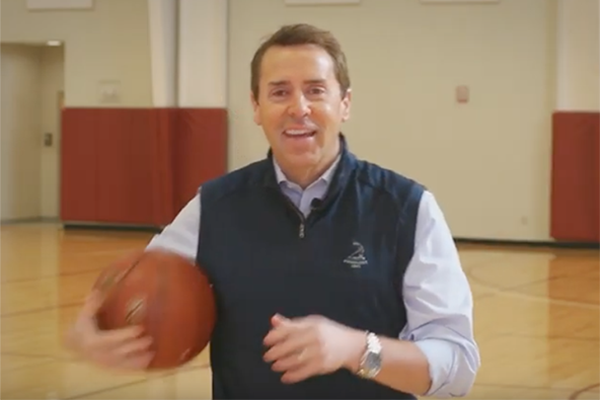Sixth District Congressman Mark Walker is taking on an issue most people in North Carolina care more about than taxes, military spending, illegal immigration and climate change combined, at least during March – the National Collegiate Athletic Association (NCAA) and, in particular, NCAA basketball.
There doesn’t seem to be much question that NCAA basketball is messed up. The idea of a coach putting together a team of freshmen who play one year and turn pro – “one and done” – is a contravention of the very idea of collegiate sports.
And lots of folks have strong opinions about what should be done to fix the NCAA, but so far most of those who have the power to change the current system, in particular the NCAA officials, appear to be sitting on their hands.
Now Walker has stepped right into the middle of the controversy over how to treat college athletes by introducing a bill in Congress, H.R. 1804, called the Student-Athlete Equity Act, which would remove the restrictions on student-athletes using or being compensated for the use of their name, image or likeness.
Although it would apply to all student-athletes, the most notable would be the Division 1 basketball and football players.
Walker said, “Signing an athletic scholarship with a school should not be a moratorium on your rights to your name, image and self-worth. It’s time to bring equity to student-athletes and fix the injustices that exist in the current NCAA model.”
Walker added that the legislation wouldn’t cost the NCAA or the schools anything but would give back to student-athletes the same rights and opportunities as every other American.
A former student-athlete himself, Walker asked the NCAA to change its rules but the NCAA chose to study his proposal rather than act on it, so Walker, former chair of the Republican Study Committee, and Rep. Cedric Richmond, a Democrat from Louisiana, introduced the legislation, which will change the definition of a qualified amateur sports organization and remove the restrictions on college athletes profiting from their own fame.
Walker noted that 99 percent of college student-athletes will never receive a single paycheck from a professional sports team and the current NCAA regulations make it impossible for them to make a profit from their athletic talent while they are in school.
The NCAA has a 22-year, $19 billion television contract for the rights to broadcast the men’s NCAA basketball tournament, but the student-athletes who are the stars of the show are prevented from making a dime.
Walker’s bill won’t fix everything that’s wrong with the current NCAA rules, but it might get the NCAA’s attention, which would be worth its weight in gold.

